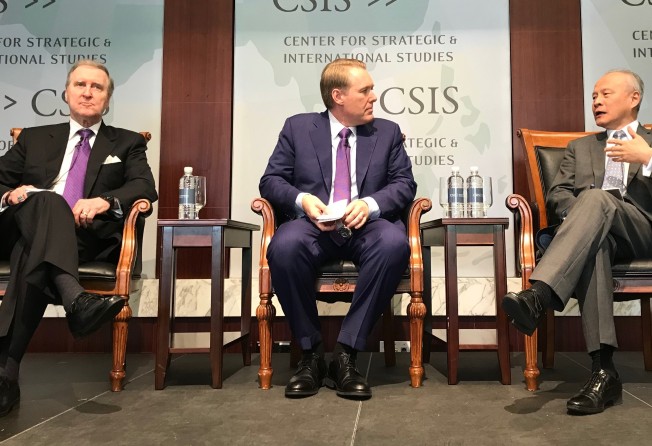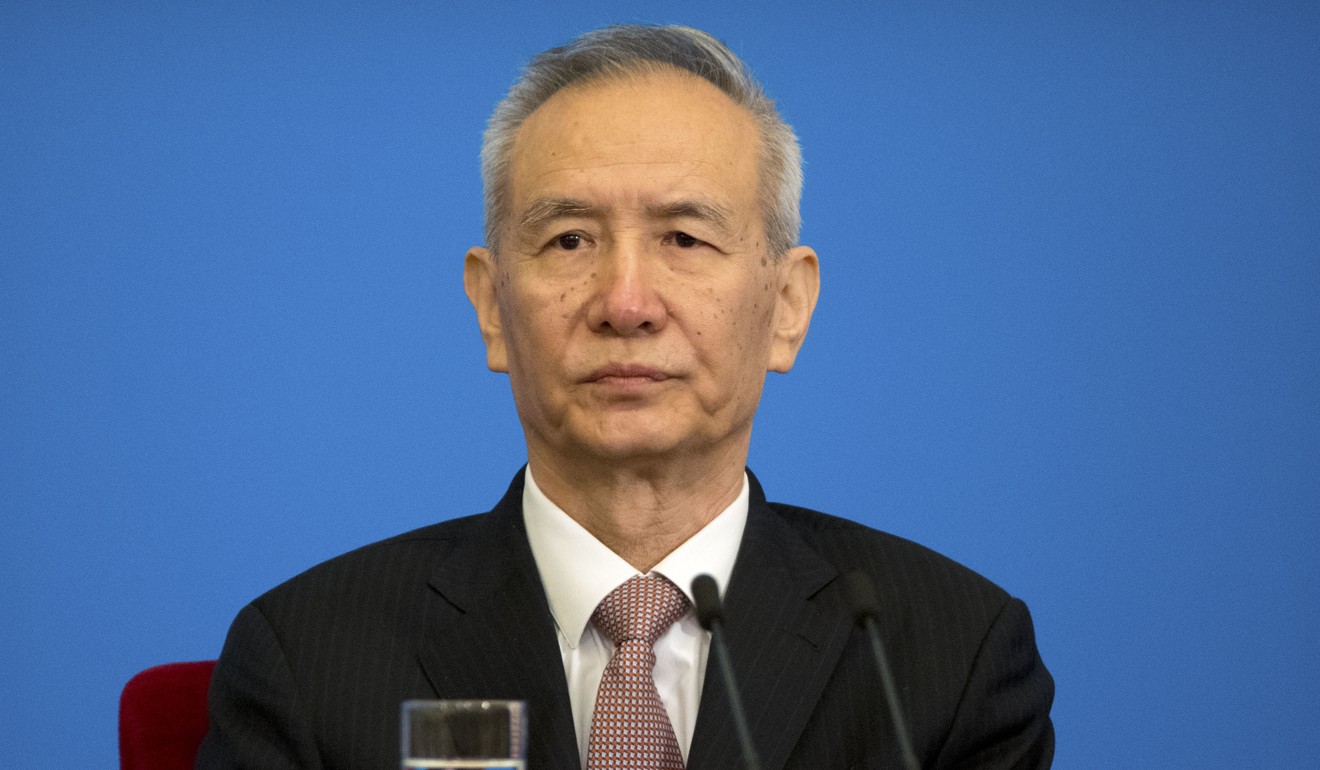‘It’s already a problem, not a benefit’: Chinese ambassador to US says cutting trade imbalance is in China’s interest too
Cui Tiankai was less optimistic about Beijing changing its ‘Made in China 2025’ plan to provide support for domestic companies developing advanced technologies

China’s top envoy to the United States said on Friday that he supports negotiations aimed at reducing a US-China trade imbalance, and that it is likely to be successful, striking an optimistic note as officials from both sides met to discuss the issue – and help mend the countries’ ties – in Washington.
“A huge deficit for you and a huge surplus for us – I don’t think this should continue,” Ambassador Cui Tiankai said in a discussion with former US defence secretary William Cohen at the Centre for Strategic and International Studies in Washington.
“I don’t think it will continue. For us, such an imbalance is already a problem rather than a benefit,” he said.
“We need to make more efforts to achieve some kind of a balance in our trade relationship. I’m quite confident that if we have a balanced approach, we can find a solution.”
Cui made his remarks as Chinese economic officials met their US counterparts to lay out a strategy for cutting a record trade imbalance, part of preparations for the next visit by China’s top economic official, Vice-Premier Liu He, to Washington.
Punitive trade tariffs on about US$50 billion worth of annual imports of Chinese machinery, electronics and other products to the US are set to take effect sometime after a period of public review and comment ends on May 22. Beijing responded by announcing tariffs on an equivalent volume of US imports to China.
US President Donald Trump, who ordered Trade Representative Robert Lighthizer to come up with the tariff list last month to cut the US trade deficit with China, has threatened to target an additional US$100 billion worth of Chinese products.
Mid-level officials from China’s commerce ministry are meeting with US treasury and commerce department officials in Washington to settle on a list of measures aimed at lowering the deficit by US$200 billion.
A reduction of that size in the trade gap was one of the demands made by Ross, Treasury Secretary Steven Mnuchin and other top US economic officials when they visited Beijing last week.

“We have Chinese experts in town today and US experts sitting down ‘saying let’s find a way to avoid this kind of trade conflict that will not benefit anyone’,” Cohen said during the discussion with Cui, part of a conference assessing the first 40 years of official diplomatic relations between the US and the People’s Republic of China.
The Chinese economic delegation in Washington is led by Wang Shouwen, a senior commerce ministry official, Financial Times reported, citing unnamed sources.
US government data pegs its trade deficit with China at a record US$375.2 billion for 2017.
In the first four months of this year, China’s surplus with the US rose to US$80.4 billion, up from US$70.9 billion a year earlier, according to calculations based on official Chinese government data.
In submitting feedback to the trade representative’s office Friday, the Washington-based US Chamber of Commerce reiterated officially its opposition to Trump’s tariff plan, arguing that “tariffs are hidden, regressive taxes that will be paid by US businesses and consumers, paradoxically harming US competitiveness”.
After the CSIS event, Cui, referring to the first talks in Beijing, told reporters: “If both sides make real efforts [to avoid a trade war], we do not need a deadline. We could come to an agreement very quickly. But it will require efforts by both sides.”
He was less optimistic about the chances that Beijing would alter its policy of providing government support for domestic companies developing advanced technologies including artificial intelligence, robotics and biomedicine, also known as the Made in China 2025 plan.
Mnuchin and his delegation called for an end to subsidies under that plan when they met their counterparts in Beijing.
While arguing against punitive tariffs in its USTR submission, the US Chamber of Commerce also called on the US government to push back against Made in China 2025.
The document called for a curtailment of “state financial support and regulation that distorts market competition across numerous sectors in China and globally, including under guiding frameworks such as Made in China 2025”.
Cui argued that US companies developing these technologies in China could also benefit from Beijing’s support under the plan.
“Whether we have a level playing field very much depends on where you stand,” Cui said. “Many of our American friends believe that Chinese companies get too much help from the government so it’s not fair.
“But from the perspective of Chinese companies, they might believe this competition between them and their American counterparts is not fair from the very beginning because you have the production-distribution network globally.
“You have all the expertise. You have a long history behind you. And most importantly, you have the US dollar, the international reserve currency.”
Additional reporting by Zhenhua Lu.